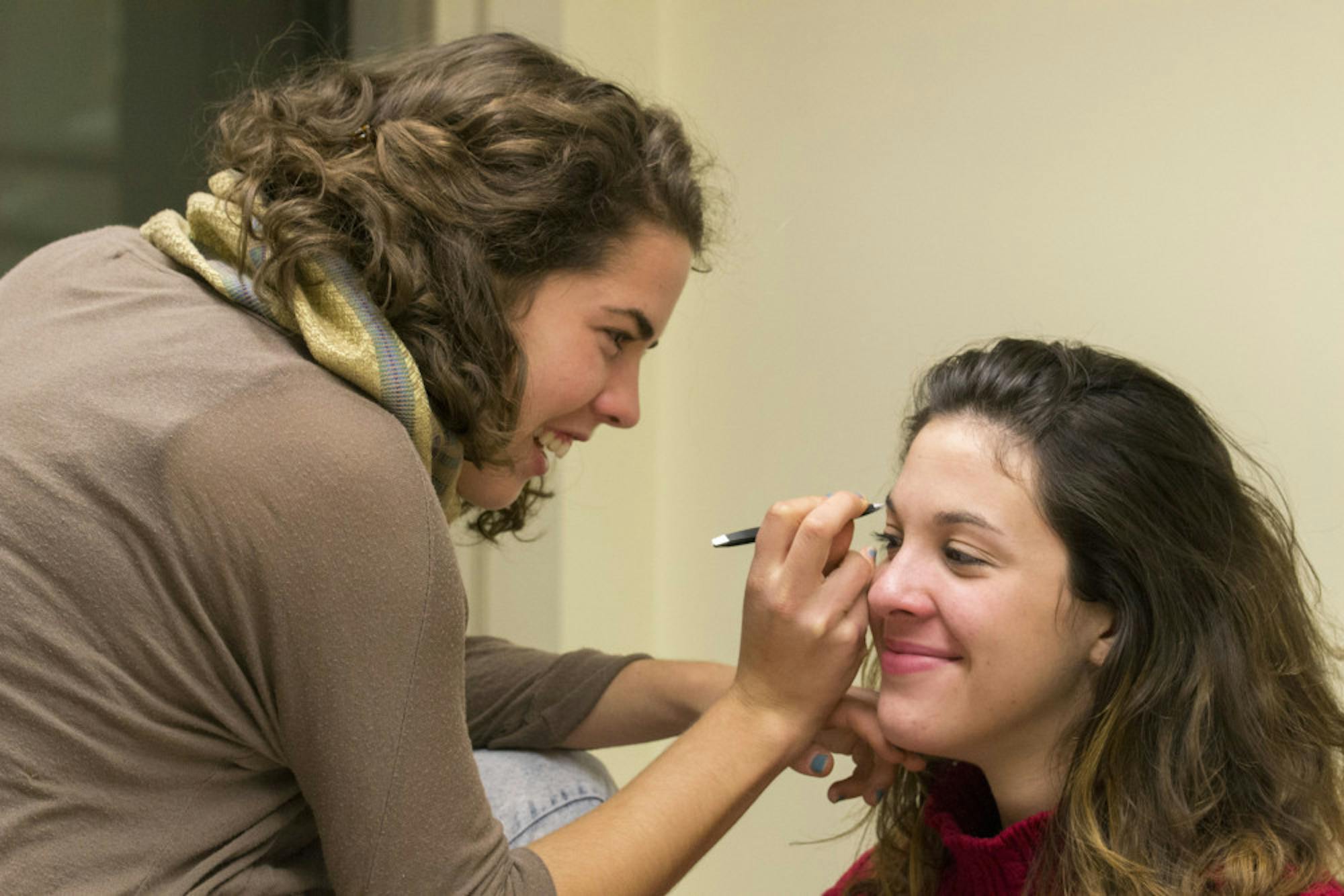Tufts juniors Lydia Collins and Bahar Ostadan founded Facial Unwanted Hair Removal (FUHR), Tufts’ first ever student-run hair removal company, in early October. The business operates out of a study room in the Tisch Library and has served over 30 customers to date.
According to FUHR’s Facebook page, the business offers eyebrow and upper lip trimming for $3 and chin trimming for $2. Customers also have the option of combining any two services at the reduced cost of $5.
Despite the fee that Collins and Ostadan charge for their hair removal services, they both say that the organization itself is entirely not for profit. All revenue generated by FUHR is donated to KIVA, the philanthropic microfinance organization that works to give grants to entrepreneurs across the world.
Collins and Ostadan said they are proud of the low prices and affordability of FUHR's services.
“People will pay 25 bucks for this and we have fun while doing it, so we might as well charge people $3 and make friends through the process,” Collins said.
While this is FUHR’s first year operating on Tufts' campus, founders Collins and Ostadan have been practicing hair removal for years. Ostadan said she and Collins both grew up teaching themselves how to remove their own facial hair, gaining a significant amount of practice from personal experience.
“I learned how to thread on YouTube,” Ostadan said. “We both have done it on so many people that you just develop a skill.”
Collins and Ostadan explained that they lived in the same dorm building their sophomore year, where they frequently performed hair removal services for anyone who requested it. After a year of doing hair removal exclusively for friends, Collins and Ostadan decided to expand their business, moving their practice to a study room in the Tisch Library and opening their business to other Tufts students.
Collins added that while the two of them could have chosen to move their business to one of their off-campus houses, they didn’t want to deter clients with an office space that could potentially be socially intimidating. Collins said their business location in Tisch was both private and well-located.
“A lot of people will come down for a ten-minute study break while they’re studying at Tisch,” Collins said. “We wanted the most geographically convenient place for students.”
According to Collins, in the past two months, FUHR has seen a large number of returning customers. While the majority of clients served are women, the company has provided services for several male clients as well, Collins said.
Collins and Ostadan explained that while FUHRcurrently only services Tufts students, the two are open to expanding their business to anyone in the area who is interested. They said they have both worked to publicize their company so that FUHR can achieve wider recognition throughout the Tufts community.
“Basically everyone finds us by either Facebook, on the Class of 2017 page or by word of mouth,” Collins said. “To spread beyond that would be difficult for the scope of our business right now."
Collins and Ostadan said that FUHR's priorities include horizontal leadership structure, comfortable attitudes, sisterhood and comprehensive feedback, as well as monitoring and evaluation. The priorities were sourced from different aspects of the founders’ private and professional lives, Collins said.
One client, junior Colin Towers-Perkins, was quoted on the FUHR Facebook page, saying that he "came for the eyebrows but stayed for the sisterhood."
Another client, junior Ali Boreiko, said that she wanted to "support my women in startups."
Collins and Ostadan have recently been focusing on how their business can enact positive change in the Tufts community. In particular, the founders have been working to see how FUHR can help fight the social taboo around talking about feminine facial hair.
“We hope that through this open and public and friendly thing that we started, it can kind of take away some of that social anxiety around facial hair,” Collins said. “I think we’ve done a good job … I definitely feel more open about talking about my eyebrows.”
Collins and Ostadan said they will both be going abroad next semester, and FUHR will be closing in their absence. However, despite the business' hiatus, both founders are excited about returning to the business senior year and have plans to reopen FUHR next fall.






